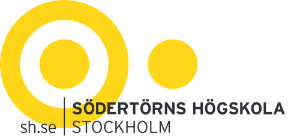Institutional Maintenance Work as a Response to the Introduction of Inspections in Swedish Schools 2003-2008 Waks, Caroline Uppsala universitet, Humanistisk-samhällsvetenskapliga vetenskapsområdet, Samhällsvetenskapliga fakulteten, Företagsekonomiska institutionen. Blomgren, Maria Uppsala universitet, Humanistisk-samhällsvetenskapliga vetenskapsområdet, Samhällsvetenskapliga fakulteten, Företagsekonomiska institutionen. 2019 (Engelska) Ingår i: Scandinavian Journal of Public Administration, ISSN 2001-7405, E-ISSN 2001-7413, Vol. 23, nr 1, s. 3-22
Artikel i tidskrift (Refereegranskat) Published
Abstract [en]
This paper focuses on a national governmental school inspections program that was reintroduced in the Swedish school system in 2003. The program included controls conducted by governmental inspectors whose task was to strictly inspect, ignoring activities such as consulting and advice-giving. In the article, we show that while the reintroduced school inspections pointed to the contours of a stricter audit regime in Sweden, studies of micro-level processes provided a more complex picture. Based on an interview study including inspectors, teachers, principals and public employees in the Swedish school system, our results show that the practices of the inspectors did not change dramatically. The inspectors participated in institutional maintenance work that kept institutionalised practices more or less intact. The paper contributes to the discussion on institutional maintenance work by investigating the role of hybrid professionals (inspectors with dual loyalties and obligations both to the state and to their professional peers) and how their interdependent relationship to stakeholders affected the conditions and character of institutional work activities.
Ort, förlag, år, upplaga, sidor
Gothenburg, 2019. Vol. 23, nr 1, s. 3-22
Nyckelord [en]
Institutional maintenance, school inspection, hybrid professionalism, interdependent relationships
Nationell ämneskategori
Företagsekonomi
Identifikatorer
URN: urn:nbn:se:uu:diva-380611OAI: oai:DiVA.org:uu-380611DiVA, id: diva2:1300797
Projekt
Swedish Research Council (421-2011- 1382).
Forskningsfinansiär
Vetenskapsrådet, 421-2011- 1382

